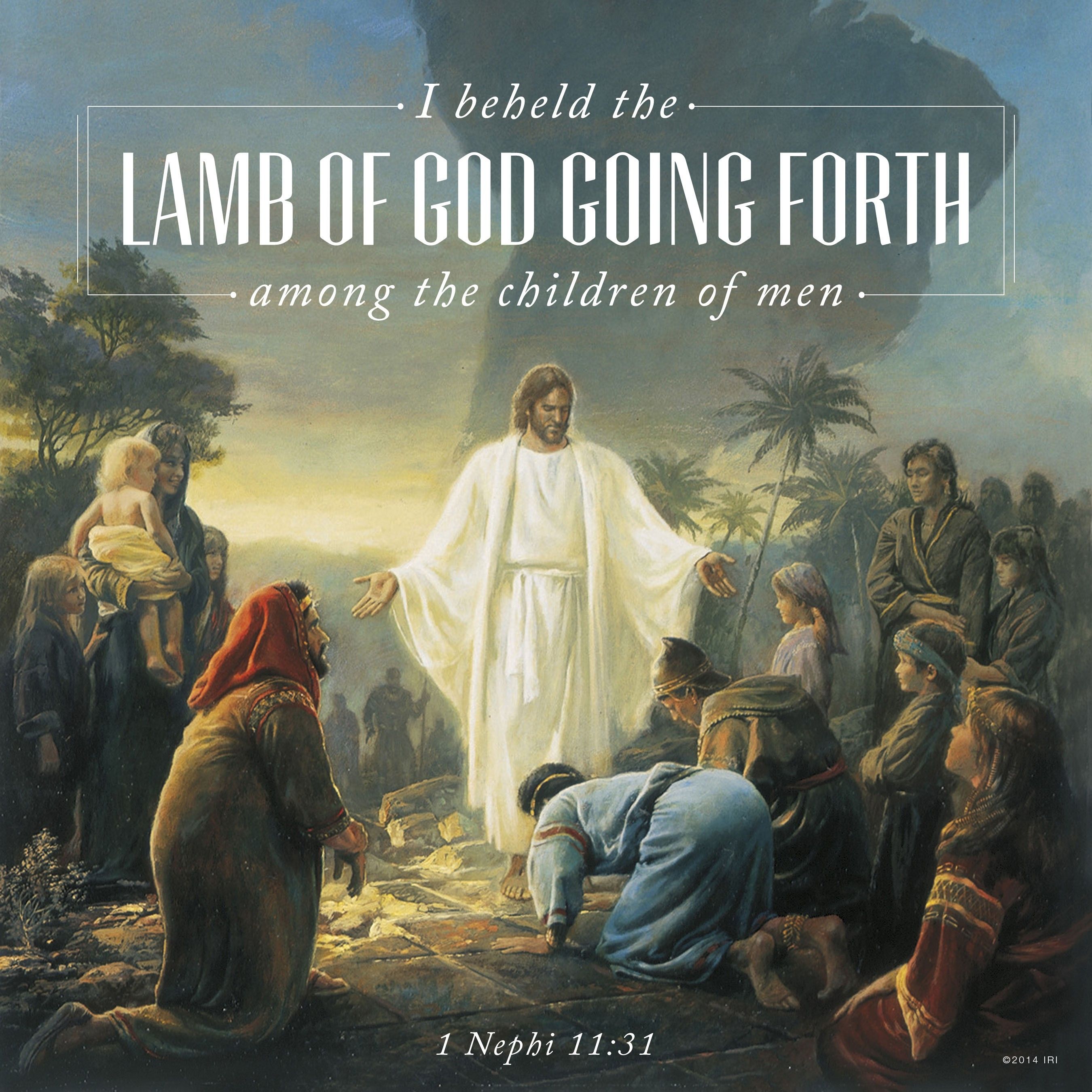I had a good conversation with a friend recently about the difference between the Book of Mormon prophet Nephi, and his rebellious brothers Laman and Lemuel. I was about to shoot off this email about our conversation when I realized this would make a very nice blog post. I have removed the friend's name to protect his identity. Enjoy!
Hello [friend],
I was looking at my notes from our conversation the other morning. At a regional conference (a meeting of multiple
stakes) recently, one might say that
Elder Jeffery R. Holland laid into us as church members for coming to conferences or church meetings, and going home and doing nothing about what we heard. He admonished us to become, "doers of the word and not hearers only" (see
James 1:22). I've been trying to be better about doing that. I was impressed as I read over my notes of our conversation of how much of it I forgot already!
Here's a brief summary:
Bryce: "What do you think made the difference between Laman and Lemuel and Nephi (see the book of
1 Nephi in the
Book of Mormon)?"
[friend]: "The way they turned out?"
Bryce: "Yeah."
. . .
I read starting in
1 Ne. 15:7: Nephi's brethren are arguing about what the things their father taught mean. They couldn't understand the analogy mentioned in verse 7. In verse 8, Nephi asks, "Have ye inquired of the Lord?" Their response, "We have not, for the Lord maketh no such thing known unto us." Nephi's response, "How is it that ye do not keep the commandments of the Lord?"
I didn't realize it, but my recounting of our conversation is not that dissimilar to Nephi's recounting of his conversation with his brethren!
Is Nephi saying that if we are not asking God questions that we are not keeping the commandments? (see
v. 9-10)
Bryce: "Basically, it looks like he's saying if you: (
Verse 11): a) don't harden your heart, b) ask in faith, c) believe you will receive, d) and
diligently keep the commandments, d) God will answer our questions and teach us--he will speak to us and communicate with us."
[friend]: "Sounds easy enough."
Bryce: chuckles. "Sounds easy enough."
Bryce: "So, it looks like prayer and keeping the commandments made the difference [between Nephi and his brethren].
Why does prayer and keeping the commandments make the difference? Prayer attunes our hearts to God. Our obedience allows God's spirit to work on us and in lives. [My thought this morning as I reviewed this: God is
very respectful of our agency. He will not meddle in our lives uninvited. Prayer and obedient striving are how we invite God into our lives. Through prayer, we can explicitly ask God to help us. I, and I think you, know that God is intimately aware of us. The scriptures say that his arms are stretched out to us. Prayer is how we reach out to him and take his hand. God's greatest desire is for us to take his hand and become like him. But,
God will not intrude upon our agency. If we do not ask, he cannot assist. If he violated our agency, he would cease to be God. So, in short, God's greatest desire is to help us. His arm is stretched out still. But for him to tamper with the agency we fought for in the
war in heaven would be contrary to to his eternal plan. God longs to help us, but eternal law requires that we ask. Does that make sense?]
I think I'll leave off there for now. I would like to report that my prayers have changed since our conversation. I have been blessed to take time to pray and my prayers have been sincere. I know that God knows everything. He knows my struggles in all aspects of my life. He knows and loves me and my family. I know that if I will seek him in prayer, he will guide me in the best ways to overcome and face the challenges I have in my life. I want to be increasingly grateful for God's attentive care. But, as I've stated above, it takes effort to reach through the veil and take God's hand. I pray that you and I can be faithful. I pray that we can and will seek God in prayer.
God's promise is that if we seek him diligently, we will find him. I invite you to join me in seeking God in prayer (also see this talk,
"Draw Near unto Me," from a
General Conference of days gone by).
Bryce
